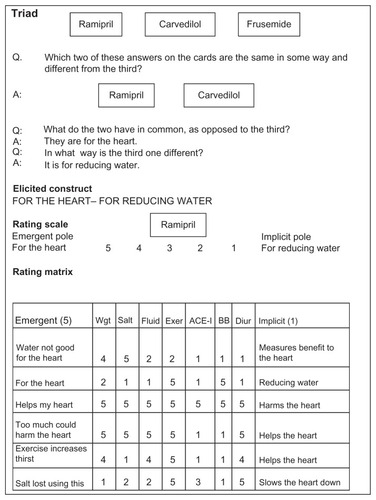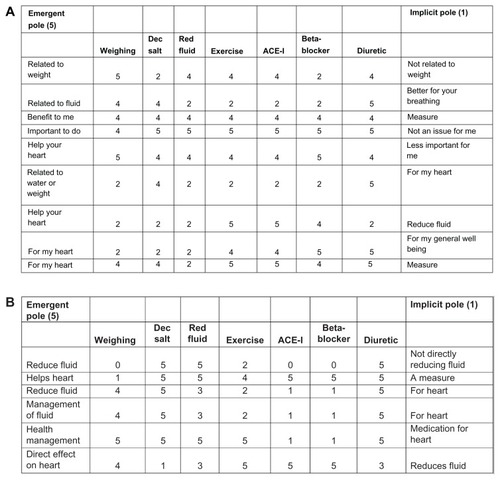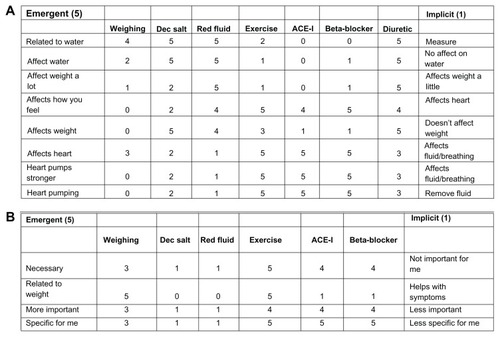Figures & data
Figure 1 Repertory grid process, generating constructs and rating information.

Table 1 Paticipant demographics
Figure 2 Repertory grid for two participants categorized as adherent (MARS ≥ 23). Both participants (A) and (B) had MARS score = 25.
Abbreviations: MARS, Medication Adherence Report Scale; Dec, decreasing; Red, reducing; ACE-I, angiotensin converting enzyme-inhibitor.

Figure 3 Repertory grid for two participants categorized as nonadherent (MARS ≤ 22). Both participants (A) and (B) had MARS score = 22.
Abbreviations: MARS, Medication Adherence Report Scale; Dec, decreasing; Red, reducing; ACE-I, angiotensin converting enzyme-inhibitor.

Table 2 Examples of some of the individual generated constructs for the six most common themed constructs
Table 3 Comparison between levels of self-reported adherence (from dichotomized MARS score) and the generated themed constructs
